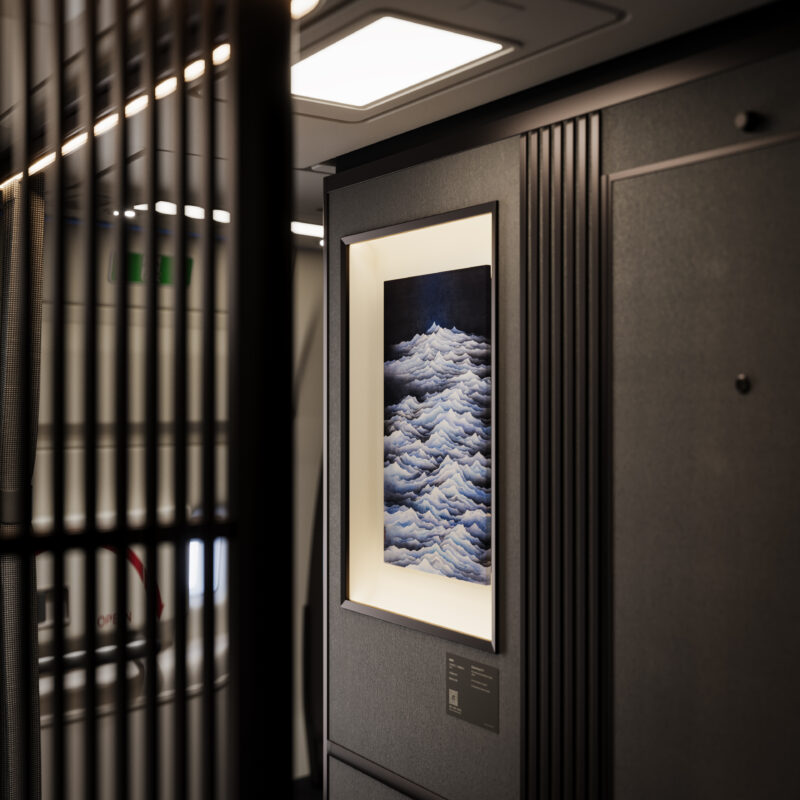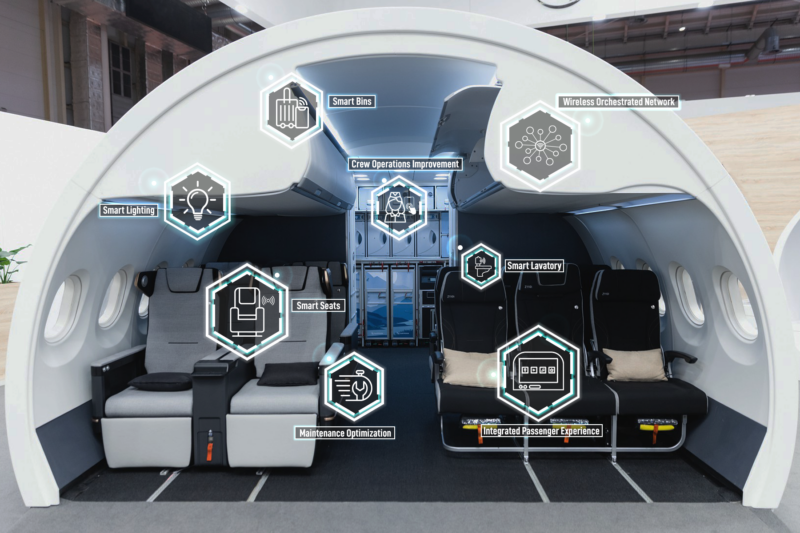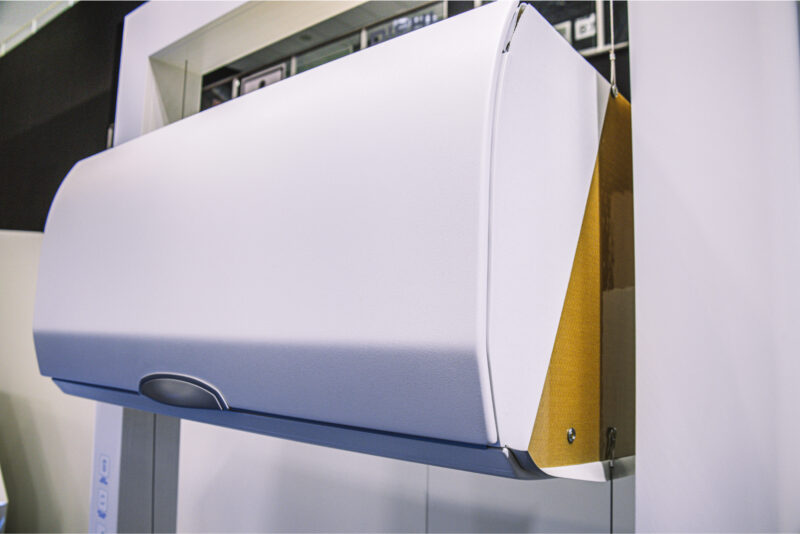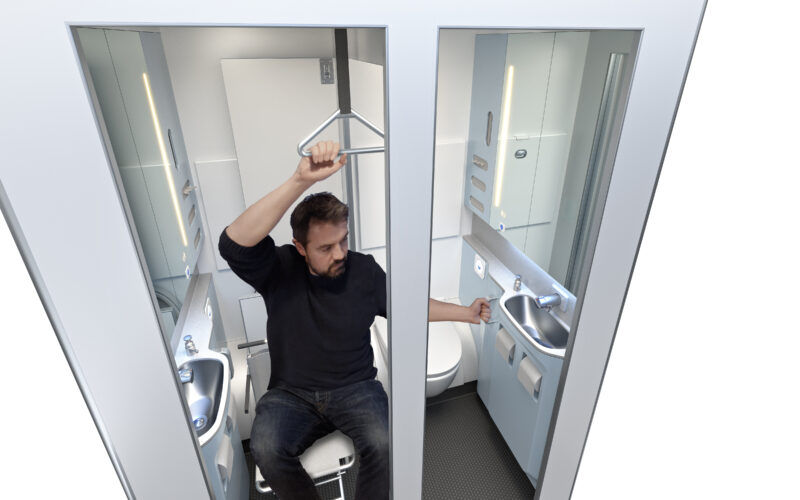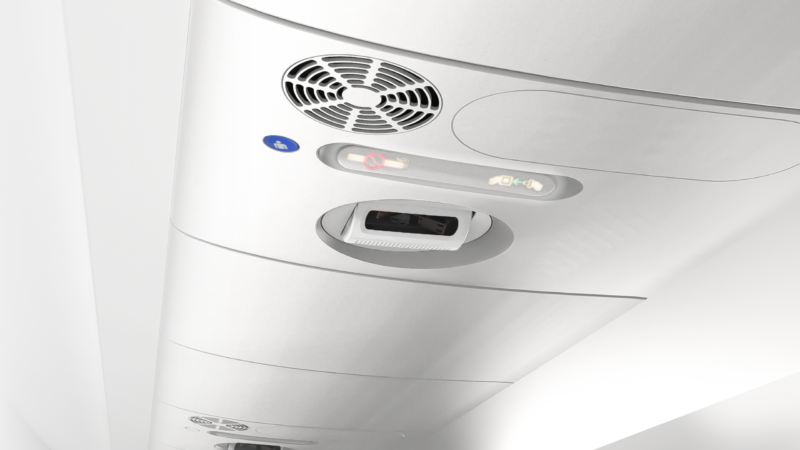At the Passenger Experience Week in Hamburg, The Crystal Cabin Awards winners were announced at a gala dinner.
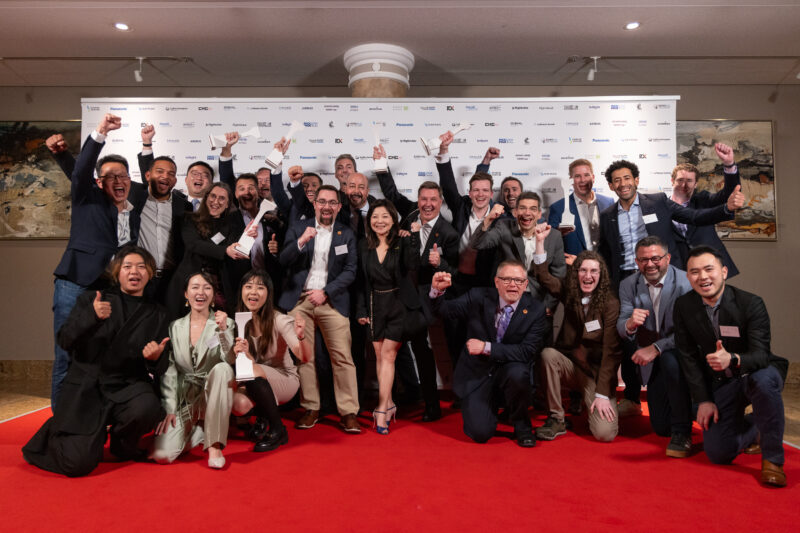
The Crystal Cabin Award Winners 2025 – Image, Hamburg Aviation.
A panel of 27 international experts selected the seven most pioneering entries from a pool of outstanding submissions. Let us go through the winners.
Cabin Technologies – Collins Aerospace “galley.ai”
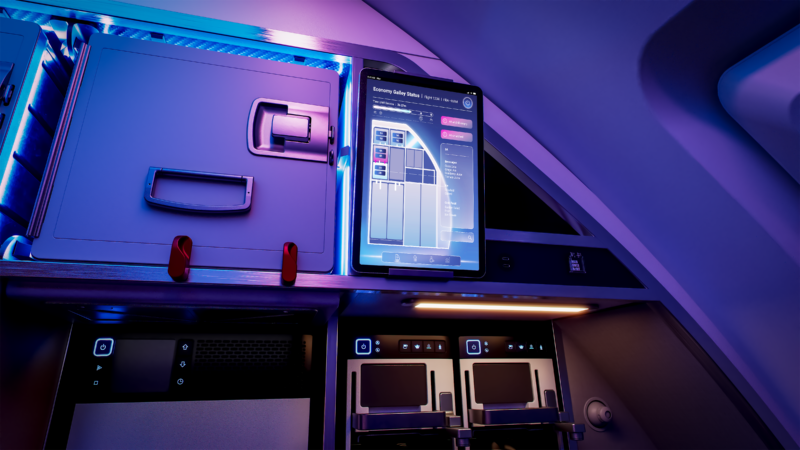
Collins Aerospace’s “galley.ai” system brings intelligence and connectivity to onboard meal service by combining AI and sensor technology to optimize crew workflows, passenger communication, and maintenance processes.
The system tracks orders and inventory in real-time, enables dynamic service updates, and provides direct information to passengers throughout the flight. By linking galley equipment, crew tools, and cabin interfaces, galley.ai creates a more efficient, coordinated, and passenger-focused inflight experience.
The jury was particularly impressed by the ability of galley.ai to integrate multiple information streams, system modules and components, harnessing AI in a way that lowers crew workload
Judges’ Choice: Airline Innovation – Cathay Pacific “Gallery In The Skies”
Cathay Pacific’s “Gallery in the Skies” transforms the cabin into an airborne art space, showcasing 30 unique works by artists with deep ties to Hong Kong – one masterpiece per retrofitted aircraft.
Curated with the guidance of Hong Kong art experts Dr Henrietta Tsui-Leung and Alan Lo, the collection invites passengers to engage with art in a gallery-like setting above the clouds. Each piece is presented on aviation-grade canvas within a purpose-built, light-enhanced display that blends seamlessly into the cabin’s spatial design, offering a new dimension to the inflight experience.
Passenger Comfort – The Winner: Cathay Pacific, JPA Design and Reaktor “IFEC: In-Flight Entertainment & Control”
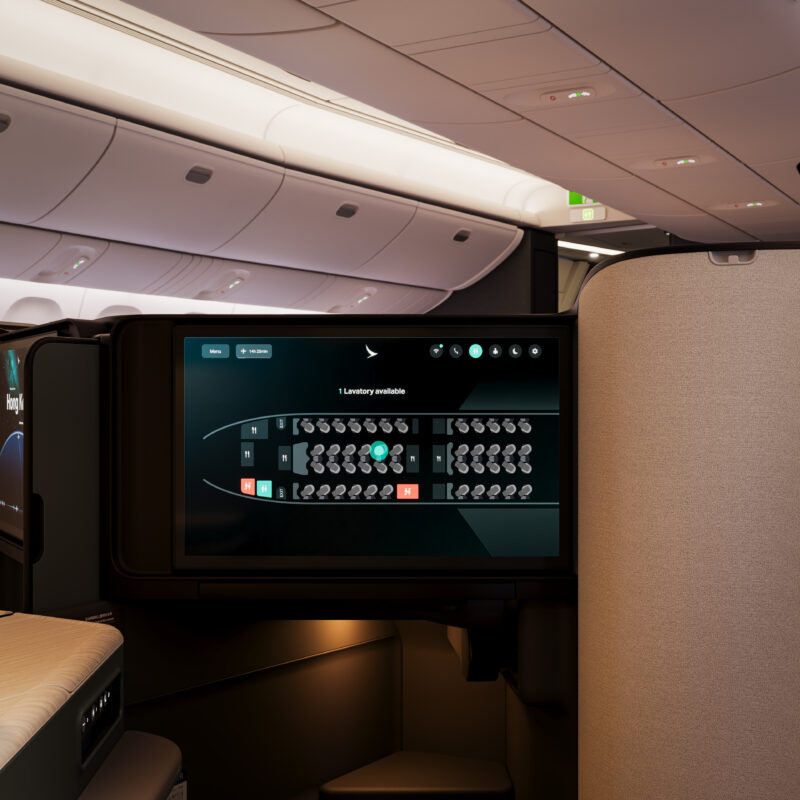
Cathay Pacific’s “Aria Suite” introduces an IFEC system that unifies in-flight entertainment and cabin environment control like never before. For the first time in aviation, passengers can manage lighting, seat position, and crew communication through fully integrated “Activity Modes” – customizable pre-sets accessible via the IFE screen, handset, seat control display, or remote. Seamlessly connected to the aircraft’s systems, the interface even allows passengers in all classes to check lavatory availability from their seat.
As the judges noted during their deliberations, the ability to integrate WC availability has been a longstanding aim of cabin system designers, setting the winning entry apart as a new industry benchmark in smart cabin interaction.
IFEC and Digital Services – The Winner: Safran Cabin “Safran Connected Interiors”
Safran Cabin’s new IoT solution aims to transform aircraft interior maintenance by turning real-time cabin data into smart, actionable insights. The system works autonomously to detect issues early, streamline repairs, and keep operators fully informed through a user-friendly digital portal. Easy to retrofit and compatible with a wide range of aircraft, the technology is designed to airlines improve reliability, reduce downtime, and deliver a smoother passenger experience.
Sustainable Cabin – The Winner: Diehl Aviation “ECO Bin”
Diehl Aviation’s “ECO Bin” is the world’s first fully recyclable overhead stowage compartment, marking a major leap toward sustainable cabin design. Made from a lightweight thermoplastic sandwich material, it reduces fuel consumption and emissions while meeting strict safety standards.
With fewer components and energy-efficient manufacturing, the ECO Bin sets a new benchmark for eco-friendly, efficient, and future-ready aircraft interiors. Deeply impressed by the “industry first” nature of the winning entry and its ability to substantially reduce the environmental impact over the aircraft’s lifetime, the judging panel awarded Diehl Aviation its second trophy in this category in two years.
Accessibility – The Winner: Diehl Aviation “Space³”
Diehl Aviation’s “Space³” redefines inclusive air travel with a smart, accessible cabin design that ensures dignity and independence for passengers with reduced mobility. Featuring wide doors, foldable sinks, and a unique sliding mat system, it offers comfort and safety while optimizing space with four lavatories and additional seating.
By reducing weight by up to 80 kg, Space³ not only meets upcoming accessibility regulations but also supports airlines in cutting fuel costs and unlocking new revenue potential. Claudia Friedrich, Jury member and Managing Director, Interface Design at zweigrad design says: “We listened, learnt and adapted – us and our product. This was not only a statement, but also a reality lived by Diehl Aviation’s Space3 to ensure fairness & dignity for everyone while travelling.”
University – The Winner: Tongji University in cooperation with Boeing “Ultra-lightweight Display System”
Developed by a team from Tongji University, the “Ultra-lightweight Display System” reimagines in-flight entertainment by using compact projectors and gesture recognition in place of traditional seatback screens.
Integrated into the Passenger Service Unit, it can project content onto tray tables, windows, or partitions – reducing system weight, saving fuel, and freeing up cabin space. With intuitive controls and PED compatibility, this innovative student-led solution offers airlines a more sustainable IFEC option and passengers a flexible, immersive experience. Among the USPs that led the judging panel to select Tongji University and its development partner Boeing as the winners were the enormous potential weight saving when replacing seatback IFEC systems, as well as the developers’ plans to include a feature to avoid jitter in the projected image induced by turbulence.
Tongji University wins the Crystal Cabin Award in the “University” category for the second year in a row.
In Quotes
Ralf Gust, President of the Crystal Cabin Awards Association said:
“The finalists of the Crystal Cabin Award 2025 impressively demonstrate the high level of innovation within our industry – and the diverse ways we can enhance the passenger experience for everyone,”
“With new categories like “Accessibility” and “Judges’ Choice: Airline Innovation”, we are setting deliberate impulses for a more inclusive, creative and sustainable future of flying. The winning concepts show that it’s no longer just about comfort – it’s about personal relevance, technological intelligence and social responsibility.”
Pushing forward cabin comfort and sustainability
The Crystal Cabin Awards have always “looked forward” to the industry, with the concepts and ideas that can improve the passenger experience – from things that are very visible to passengers, whilst there are items that are just out of view, yet improving the experience step by step.
In a sign of innovation, the Crystal Cabin Awards have also evolved to cover Airline Innovation and Accessibility – things that will matter to people in the real world with products that can take the next step forward.
We’ll be diving into some of these winners in the next few days at Aircraft Interiors Expo.
Welcome to Economy Class and Beyond. Your no-nonsense guide to network news, honest reviews, in-depth coverage, unique research, as well as the humour and madness I only know how to deliver.
Our Social Media pool has expanded. You can find us across most networks as @economybeyond on BlueSky, Threads, Mastodon and Instagram!
Also, remember that we are part of the BoardingArea community, bringing you the latest frequent flyer news from around the world.
